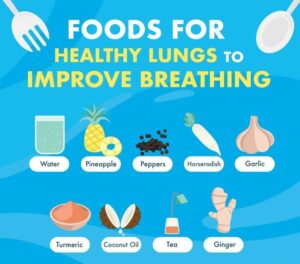Is Burping a Lot a Sign of Cancer: Excessive Burping and Cancer Risk
Burping a lot may indicate stomach, pancreatic, or esophageal cancer, among other gastrointestinal (GI) malignancies. But in these situations, belching is usually accompanied by additional symptoms like discomfort and swelling. On its own, excessive belching rarely indicates malignancy.
Understanding the Connection Between Burping and Cancer
Burping, also known as belching, is the release of air from the stomach through the mouth. It’s a common occurrence and often a normal bodily function. However, frequent burping can sometimes raise concerns, especially when it is excessive and accompanied by other symptoms. This article will explore whether excessive burping can be a sign of cancer and discuss other potential causes, symptoms, diagnosis, treatment options, and preventive measures. Read more: Can Vaping Cause Lymph Node Cancer
What Causes Burping?

Burping usually occurs due to swallowing excess air, which can happen when eating or drinking too quickly, talking while eating, consuming carbonated beverages, smoking, or chewing gum. However, it can also be caused by certain medical conditions, including:
- Gastritis: Inflammation of the stomach lining.
- Acid reflux/GERD: When stomach acid flows back into the esophagus.
- Peptic ulcer disease: Sores in the stomach lining or duodenum.
- Lactose intolerance: Inability to digest lactose in dairy products.
- Helicobacter pylori (H. pylori) infection: A bacterial infection that can cause stomach ulcers and is associated with an increased risk of stomach cancer.
Also Read This Article: Bowel Cancer Stomach Noises
Is Excessive Burping a Cancer Indicator?
Excessive burping alone is not typically a cancer symptom. However, when it occurs with other symptoms, it may indicate certain types of gastrointestinal cancers, such as stomach, esophageal, or pancreatic cancer. Persistent burping and cancer signs often go hand-in-hand when there are additional symptoms, such as:
- Unexplained weight loss
- Loss of appetite
- Difficulty swallowing (dysphagia)
- Feeling full quickly
- Abdominal pain or discomfort
- Nausea and vomiting
- Heartburn or indigestion
- Fatigue
Frequent Burping Cancer Symptoms
When considering frequent burping as a potential cancer symptom, it is crucial to be aware of other accompanying signs. High burping frequency and cancer may be more closely linked if symptoms like unintentional weight loss and abdominal discomfort are also present.
Diagnosis of Burping-Related Cancer
If you experience burping frequently and potential cancer symptoms, it is essential to consult a healthcare provider. Diagnosing cancer often involves:
- Physical exams
- Lab tests using blood, urine, or tissue samples
- Imaging tests such as CT scans, ultrasound, or MRI
- Endoscopy: A procedure where a doctor uses a thin, flexible tube to view the digestive tract and possibly take tissue samples.
- Biopsy: Removal and examination of tissue to detect cancer cells.
Treatment for Cancer Linked to Burping
Treatment options depend on the type and stage of cancer. Common treatments include:
- Surgery: Removing cancerous tissue or organs.
- Radiation therapy: Using X-rays to destroy cancer cells.
- Chemotherapy: Using drugs to stop cancer cell growth.
- Targeted therapy: Drugs that target specific cancer cells.
- Immunotherapy: Stimulating the immune system to attack cancer cells.
- Laser therapy and electrocoagulation: Techniques to destroy cancer cells.
Other Causes of Excessive Burping

Not all cases of excessive burping are related to cancer. Other health conditions that can cause excessive burping include:
- Irritable bowel syndrome (IBS)
- Chronic constipation
- Dyspepsia (indigestion)
- Gastroesophageal reflux disease (GERD)
Preventing Excessive Burping
To reduce burping and digestive health issues, consider the following tips:
- Eat and drink slowly.
- Avoid carbonated and caffeinated drinks.
- Avoid chewing gum and sucking on hard candy.
- Quit smoking.
- Ensure dentures fit properly if you wear them.
- Exercise regularly.
- Avoid gas-producing foods like beans, peas, lentils, onions, broccoli, cabbage, and whole grains.
Summary
While burping excessively and cancer warning signs can be alarming, understanding burping and cancer risk is essential for proper health management. Burping frequently and potential cancer symptoms should prompt a visit to a healthcare provider for a comprehensive evaluation. Early detection and treatment of cancer symptoms related to burping can significantly improve the chances of successful recovery. If you have concerns about persistent burping and cancer signs, it is crucial to seek medical advice to rule out serious conditions and address any underlying health issues effectively.
FAQs
Q. Can burping be a sign of a serious health issue?
A. Persistent burping may indicate underlying health problems. It’s advisable to consult a healthcare professional for a thorough evaluation.
Q. Are there specific foods that contribute to excessive burping?
A. Yes, certain foods like beans, broccoli, and carbonated drinks are known to cause increased burping.
Q. Is burping linked to cancer, as some sources suggest?
A. While research is ongoing, there is no conclusive evidence directly linking burping to cancer. Consultation with healthcare professionals is crucial for accurate assessments.
Q. Can stress and anxiety cause frequent burping?
A. Yes, stress and anxiety can lead to increased swallowing of air, contributing to excessive burping.
Q. What lifestyle changes can help reduce burping episodes?
A. Simple changes like eating smaller meals, avoiding carbonated drinks, and managing stress can significantly reduce burping.








